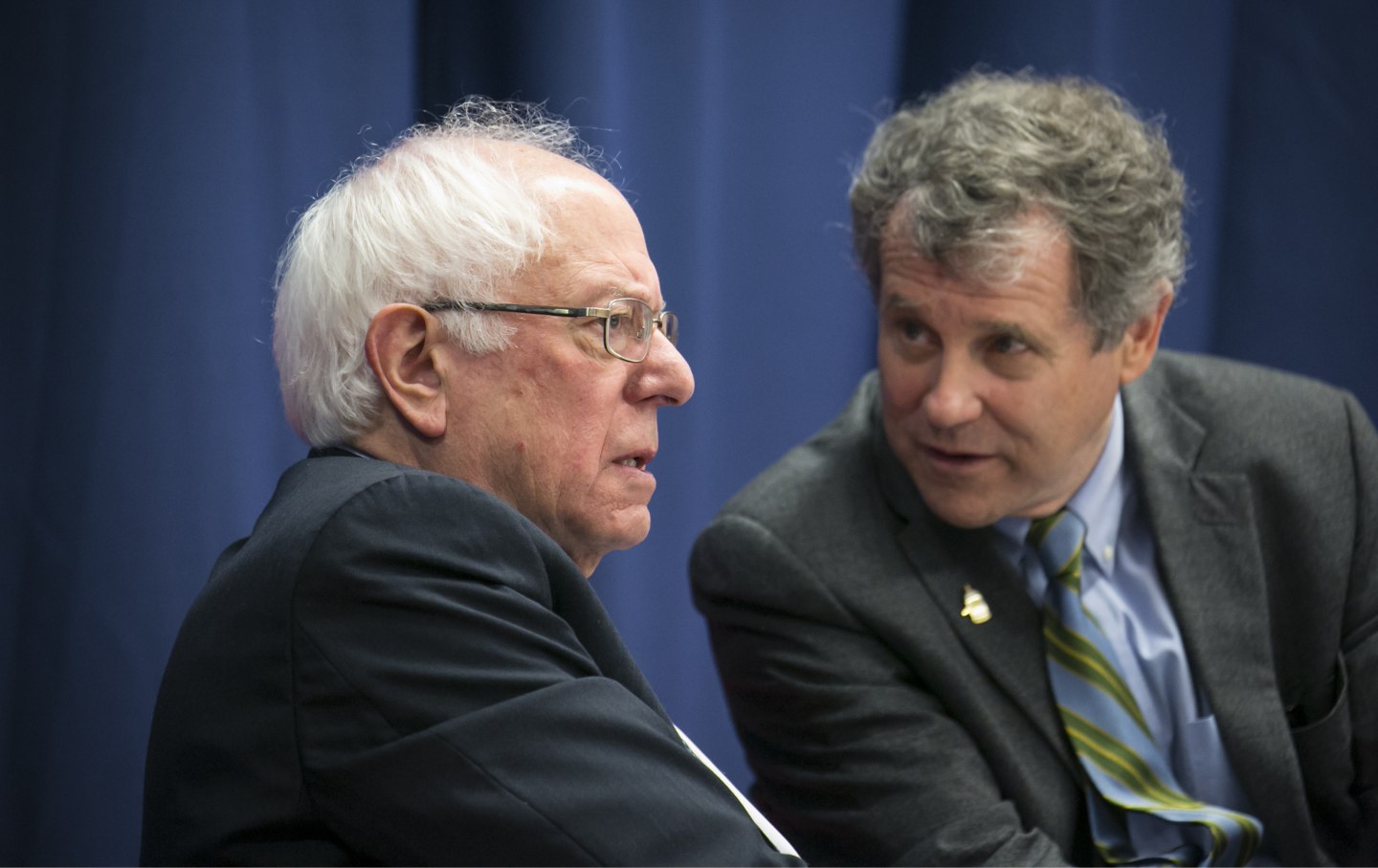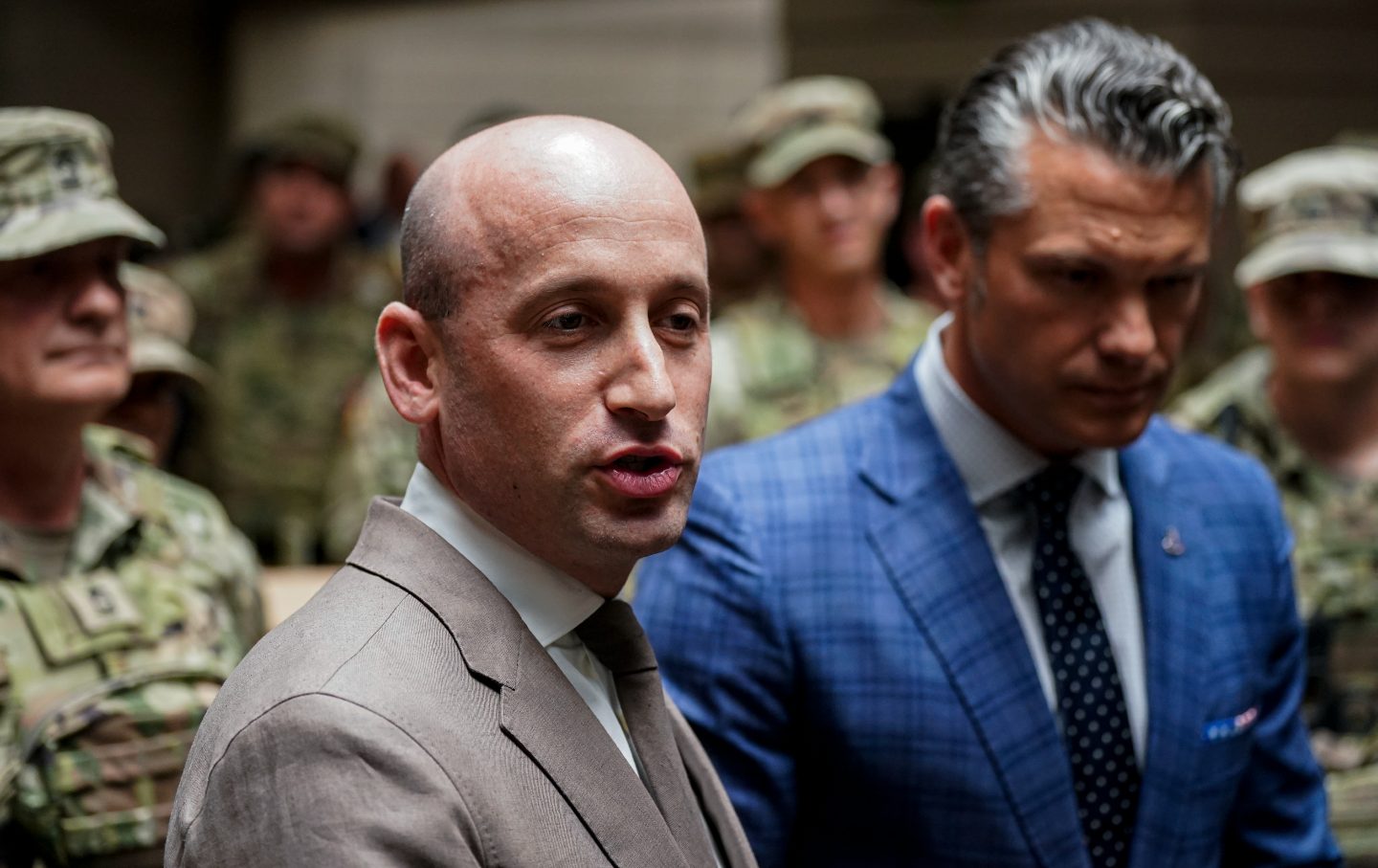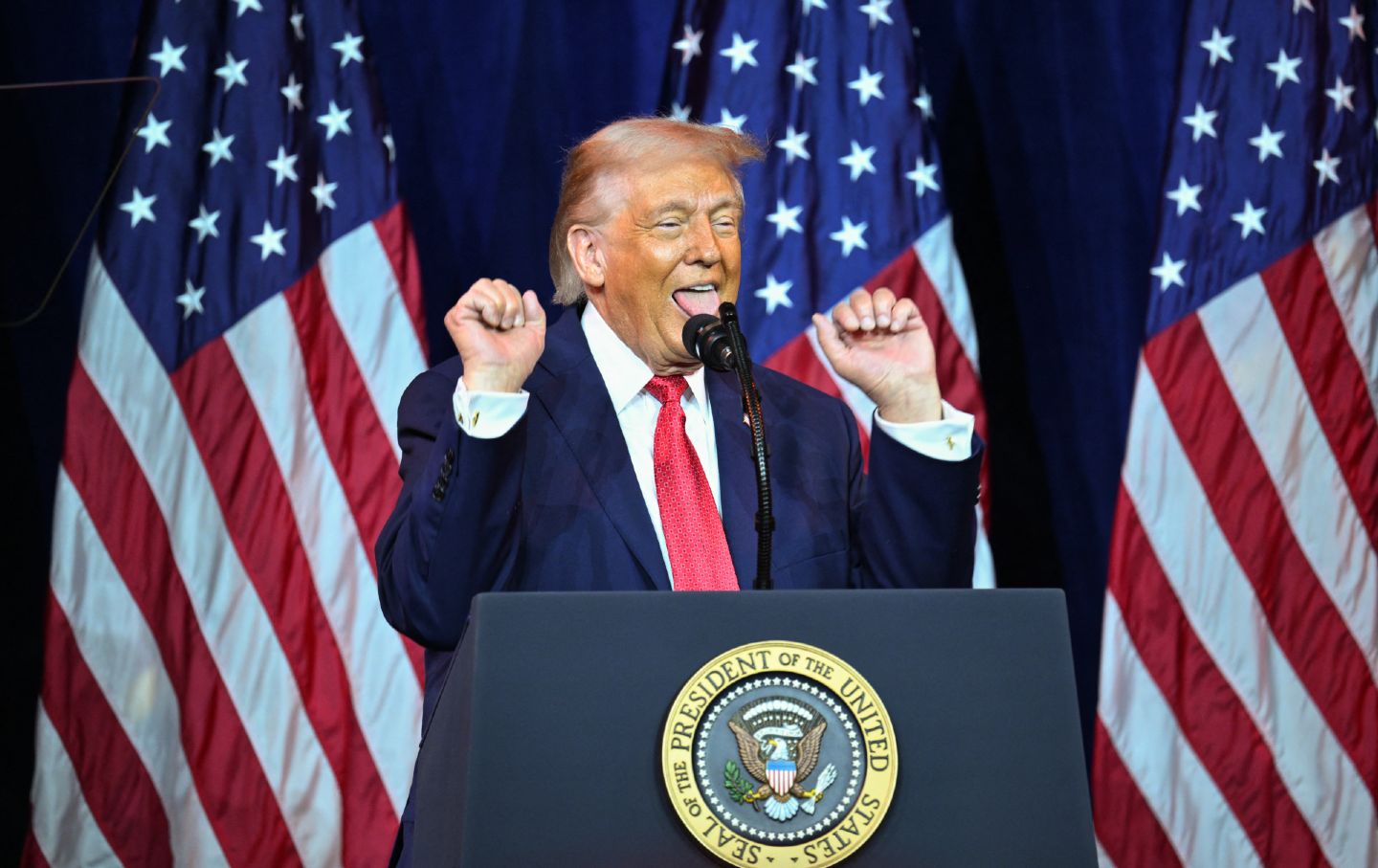Bernie Sanders and Sherrod Brown Ask the Senate: Which Side Are You On?
The pro-labor stalwarts want the Senate to pass a resolution declaring solidarity with striking UAW members.

Senators Bernie Sanders and Sherrod Brown at the Martin and Coretta King Unity Breakfast in Selma, Ala., on Sunday, March 3, 2019.
(Nicole Craine / Bloomberg via Getty Images)Fifty-eight percent of Americans support United Auto Workers union members in their strike against the Big Three automakers, according to the latest Reuters/Ipsos poll, while a fresh Associated Press/NORC survey finds that only 9 percent side with the corporations over the workers.
So it shouldn’t be hard for politicians who invariably claim that they sympathize with working Americans to stand in solidarity with the UAW and its demands for fair wages, improved working conditions, and a say regarding the future of an iconic American industry. But, so far, the Democratic-controlled US Senate has failed to follow the lead of President Biden, who joined a UAW picket line in Michigan on September 26, when it comes to showing solidarity with the strikers.
US Senators Bernie Sanders (I-Vt.) and Sherrod Brown (D-Ohio) want to change that. Sanders, the chair of the Senate Health, Education, Labor and Pensions Committee, and Brown, the chair of the Senate Banking Committee, have introduced a resolution declaring that the Senate “stands with the United Auto Workers in their fight against corporate greed; supports every worker’s fundamental right to organize and collectively bargain for better wages, benefits, and working conditions; and calls on the Big Three automakers—General Motors, Stellantis, and Ford—to negotiate in good faith and offer their workers a fair contract.”
There’s no doubt about which side Brown and Sanders are on in the fight between a union that represents nearly 150,000 workers at plants across the country, including tens of thousands of autoworkers in Brown’s state of Ohio, and the three highly profitable corporations that the UAW has been striking since September 15. Both are pro-labor stalwarts who have walked more than their share of picket lines over the years. But could Sanders and Brown actually get the Senate—a chamber awash in political-action-committee cash that has a long history of bending to Wall Street’s demands for free-trade deals, tax giveaways, and corporate welfare—to join them in a show of solidarity?
Sanders makes a compelling argument that his colleagues can and should do the right thing. “The fight the UAW is waging has everything to do with the outrageous level of corporate greed and arrogance on the part of senior executives in the automobile industry and their backers on Wall Street,” says the senator from Vermont.
At a time when the Big 3 automakers have made $250 billion in profits over the past decade, it is absolutely unacceptable that wages for the average autoworker have gone down by 30 percent in the past 20 years after adjusting for inflation. If these companies could afford to spend $9 billion on stock buybacks and dividends last year, they can afford to sign a contract that treats their workers with the respect and the dignity that they deserve. Enough is enough. The time has come for the United States Senate to go on record in support of UAW workers and against corporate greed.
So far, 31 Democratic senators have aligned with Sanders and Brown, signing on as cosponsors of the resolution. One Republican, Missouri firebrand Josh Hawley, has also sided with them. Last month, Hawley joined a UAW picket line outside a GM plant in Wentzville, Mo. True, there are plenty of reasons to cast a cynical eye at his actions, especially since, as Lucas Kunce, Hawley’s leading Democratic rival in next year’s election, notes, his record on union issues is dismal. “Hawley supported an anti-union ‘Right-to-Work’ scam, opposes the PRO Act, and has a zero percent rating from the UAW,” Kunce recently explained. “But he thinks so little of working people, he’ll lie and pretend to lament the assault on organized labor led by corporate politicians like himself.”
Pretending or not, at least Hawley has signed on, which is more than can be said for a number of prominent Senate Democrats. Virginians Mark Warner and Tim Kaine, the party’s 2016 vice presidential nominee, have yet to cosponsor the resolution. Also missing from the cosponsor list are West Virginian Joe Manchin, a corporate-tied Democrat who has frequently broken with his party on issues of concern to working people, and Arizonan Kyrsten Sinema, who was elected as a Democrat but now sits in the Senate as an independent member of the Democratic Caucus.
Like Sanders, Brown, and Hawley, Kaine, Manchin, and Sinema are all up for reelection in 2024. So even if some of the wavering senators aren’t inclined to do back the union on moral grounds, they might be inclined to support a popular cause for reasons of politics.
The bottom line is that, if Senate Democrats simply unite behind the Sanders-Brown resolution, it could pass. After all, the most powerful player in the Senate, majority leader Chuck Schumer (D-N.Y.) is an outspoken UAW backer. On the day that the union struck the Big Three, Schumer issued a solidarity statement, in which he said, “The UAW has helped build and strengthen America’s middle class. Today, thousands of UAW workers are fighting for better wages, better benefits, and safer working conditions. I urge the car companies to bargain in good faith to quickly reach a new contract that is fair to workers.” In late September, Schumer joined a UAW picket line in Tappan, N.Y.
So the Senate is in a position to get on the right side of this historic strike. That’s precisely what Brown is hoping for as he argues that his colleagues can and should declare, “We stand in solidarity with autoworkers in Ohio and around the country as they demand the Big 3 automakers respect the work they do to make these companies successful.”








